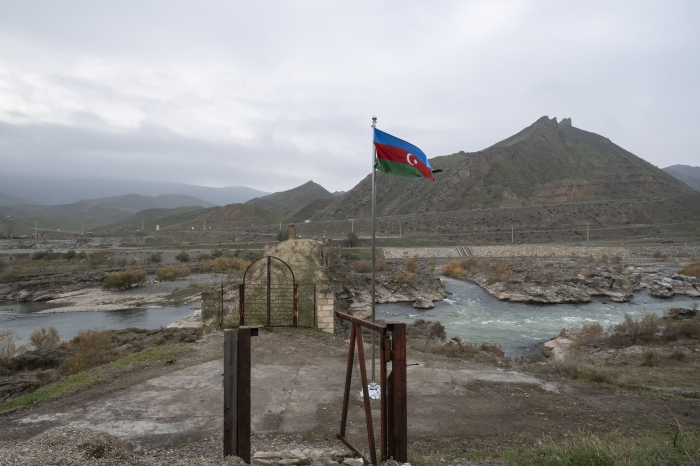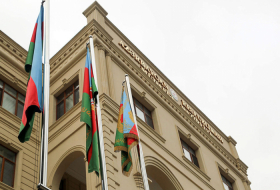As recently as 1 February, Azerbaijani President Ilham Aliyev celebrated peaceful stability along the Armenia-Azerbaijan border following the dissolution of the separatist regime in the Karabakh region in September 2023. There is already de facto peace between the two countries, and a state of peace has prevailed along the border for several months, he said in a meeting with the Secretary General of the Inter-Parliamentary Union. “Yet, to deliver a logical conclusion to this process, a peace treaty must be signed, and Armenia’s territorial claims against Azerbaijan must be brought to an end”, President Aliyev stressed in reference to the territorial claims in Armenia’s constitutional documents.
This stability at the border, along with the optimism for a tangible breakthrough in the near future, was undermined on 12-13 February, when the armed forces of the two countries clashed in the border area, which ended with the loss of four servicemen on the Armenian side and wounded soldiers on both sides.
Armenia’s Defense Ministry launched an investigation examining the circumstances of the initial fire against the Azerbaijani side which led to the escalation of tensions and the military response of the Azerbaijani army. While the results of this investigation have not been made public yet, the first Deputy Chief of the General Staff of the Armed Forces of Armenia was relieved of his post on February 14 – which may be related with the border clashes. Another fact that has emerged is that the killed servicemen were senior volunteers from a non-governmental military group called Yerkrapah, i.e., not the members of the regular army of Armenia. This raises further questions about the causes of the first sniper attack against the Azerbaijani side.
The area where the clashes took place is an Armenian border village named Nerkin Hand, which, according to the Foreign Ministry of Azerbaijan, is a zone of observation of the monitoring mission of the European Union (EU). The Ministry’s statement particularly raises this fact and voices concerns. “[This] provocation that was undertaken exactly in the territories observed by the European Union Mission in Armenia raises serious concerns about the aims and purposes of this Mission”, said the ministry on 13 February.
These worrying developments came on the heels of Azerbaijan’s intensifying protests concerning the activities of the EU monitoring mission. On 12 February, the Ambassador of the European Union to the Republic of Azerbaijan, Peter Michalko, was summoned to the Ministry of Foreign Affairs of Azerbaijan, where the Azerbaijani side complained that “the mission is being widely exploited as an anti-Azerbaijani propaganda tool”. Baku also protested the fact that the “Mission has essentially become an agent of ‘binoculars diplomacy’ facilitating the visits of different European officials and unofficial delegations to the border areas.”
Although it has not been stated or hinted by the Azerbaijani government in its recent statements, we may assume that Baku’s concerns are also caused by the mission’s overall impact on the geopolitical situation in the South Caucasus. As Russia gradually recovers its military strength and bolsters its influence regionally, consequences of overt confrontations between Russia and the West over the South Caucasus would be devastating for all three countries of the region. These concerns are shared also by Armenian experts who warn their leaders against “new foreign policy blunders” and urge them to consider that “the prospect of Russia’s defeat in the Ukraine war is gradually becoming dimmer, and if Trump is elected president of the United States in November 2024, its probability may reach zero.”
Russia has never concealed its displeasure and resentment towards growing engagement of the West in the South Caucasus which is seen in Moscow as a “geopolitical game” to drive Russia out of the region. Last month, Russia’s Foreign Minister Sergei Lavrov again accused the EU and the United States of playing “who’s boss” game in this region, interfering into the local affairs with a geopolitical agenda, pursuing their own interests at the cost of others. He blamed the Armenian government for implementing the instructions of the West and undermining the relations between Yerevan and Moscow. At the same time, the Russian government called upon Armenia to urgently return to “normal and full work” within the Collective Security Treaty Organization (CSTO) and lamented that “our Armenian allies have truly distanced themselves from it for now”.
The historical experience shows that Russia’s disputes with a regional country at such an extreme level do not remain limited to only statements. This is a big threat not only for Armenia but also neighboring countries Azerbaijan and Georgia. Any instability in this region may upend the local peace and stability and can turn the South Caucasus into another theater of the Russia-West confrontation. While Prime Minister Nikol Pashinyan denies any intention to depart from the CSTO or align with NATO, his government’s actions, including hosting EU monitoring missions and conducting joint military exercises with the United States, signal a strategic shift.
In conclusion, the recent clashes between Armenian and Azerbaijani forces in the border village of Nerkin Hand serve as a stark reminder of the fragile peace in the South Caucasus. Despite optimistic statements from Azerbaijani President Ilham Aliyev regarding the stability along the Armenia-Azerbaijan border, the eruption of violence underscores the persistent tensions and unresolved issues between the two countries. Azerbaijan's concerns about the activities of the European Union’s monitoring mission, as well as broader geopolitical dynamics involving Russia and the West, add layers of complexity to the situation. The region is increasingly becoming a battleground for competing interests, with Russia viewing Western involvement as a threat to its influence. For Armenia, navigating these geopolitical fault lines presents significant challenges. The potential consequences of escalating tensions in the South Caucasus are dire, not only for Armenia and Azerbaijan but also for neighboring countries like Georgia. Any instability risks drawing the region deeper into the Russia-West confrontation, jeopardizing the hard-won peace achieved following the dissolution of the separatist regime in the Karabakh region. The local countries and their international partners should make sure that the conflict-ridden South Caucasus is not going to end up with a larger conflict with a geopolitical background.
AzVision.az
More about:
















































